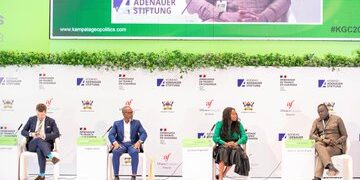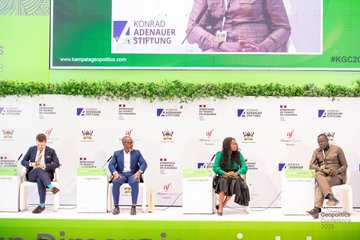At the Kampala Geopolitics Conference 2025, a high-level panel tackled the pressing issue of Africa’s longstanding quest for permanent representation on the United Nations Security Council (UNSC).
The session, titled “UN Security Council Reform: The Rationale of Africa’s Quest for Permanent Membership,” brought together diplomats, academics, youth leaders, and policy analysts to unpack the challenges and opportunities of Africa’s global representation.
Moderated by Lukas Kupfernagel, Director of the Konrad Adenauer Stiftung (KAS) Office in Ethiopia and the African Union, the panel engaged in a robust and candid conversation about Africa’s role and readiness on the global stage.
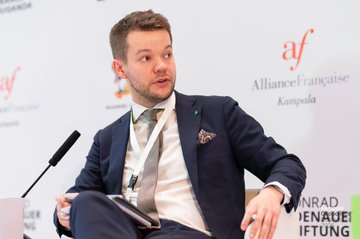
“In my two years in Addis Ababa, in my experience, when we face African problems, at best, we get lukewarm responses from the African Union,” Kupfernagel remarked. “How then will Africa be able to speak on the global stage to solve African problems, yet they can’t do much at home?”
The Ezulwini Consensus and Africa’s Representation
Amb. Dr. James Angok, Professor of Political Science at the University of Juba, revisited the historical foundations of Africa’s push for inclusion, particularly the Ezulwini Consensus, a position adopted by the African Union in 2005.
“The Ezulwini Consensus agreed to have two permanent members representing Africa on the UN Council, and three temporary members,” said Dr. Angok. “The underlying question is how to execute this decision.”
He stressed that Africa’s exclusion is outdated, especially considering the evolving global priorities.
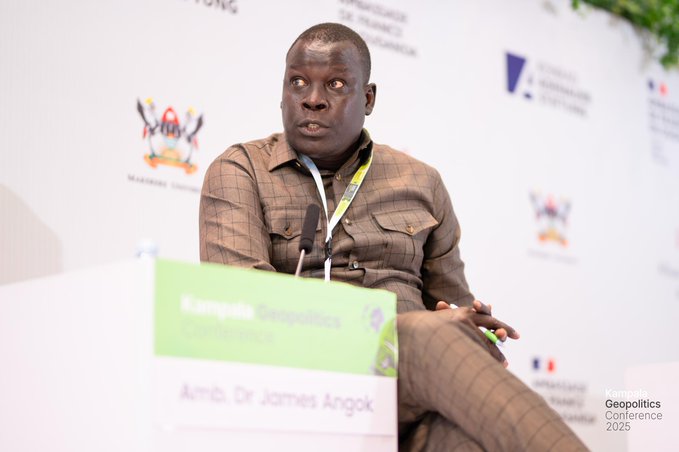
“The world is fast changing with new emerging issues such as climate change, democracy, youth unemployment—all of which need to be addressed by the UN Council. Hence, the need for proper representation,” he said.
However, Dr. Angok acknowledged that internal questions remain unresolved. “The nations that sit on the UN Council are those that fought in World War II. These nations are superpowers, but they are not continents. Africa is a continent—so how do we amply represent it on the Council? That’s the bigger concern,” he noted.
“The debate over which nation should represent Africa has since been pushed to the African Union. A consensus was reached that two representatives—one from Anglophone nations and one from Francophone nations—should be considered.”
Youth Voices: Inclusion Equals Justice
Cynthia Chigwenya, a member of the Youth Advisory Council at the Rome-based Dallaire Institute for Child, Peace, and Security, emphasized the importance of inclusion for justice and legitimacy.
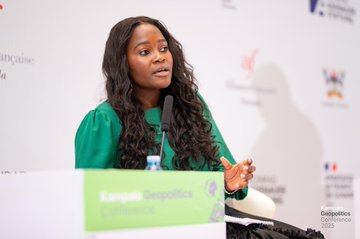
“I, personally, think Africa needs representation on the UN Council because many decisions are made in the Council for Africa—like sending peacekeeping missions,” she said. “We should be included in decision-making that is meant for our benefit.”
Chigwenya advocated for political commitment and a continental approach to representative selection. “There has to be political will to make changes in the UN Council for the benefit of Africa,” she stated.
“The UN Peace and Security Council is designed similarly to the African Union Security Council. As Africans, we should use the same methods used in the AU to aid in selecting representatives for the UN.”
A Critical Lens on African Readiness
Independent analyst and journalist Angelo Izama challenged the panel with probing questions about Africa’s readiness for global responsibility.
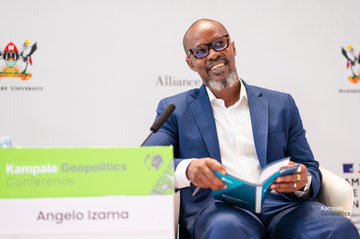
“Does Africa have strategic autonomy over its territorial affairs? Can Africa defend its airstrips from unilateral action? What would Africa do if the UAE expelled all 600,000 African labourers working there?” he asked.
Izama expressed scepticism about Africa’s institutional strength and urged internal capacity-building before global engagement. “I think Africa should settle on strengthening our internal institutions before we seek a seat on the UN Council,” he said.
“Our governments are weak and incapable of autonomy over our airspace. We must ask—are we economically and institutionally ready for what it takes to hold strategic autonomy?”
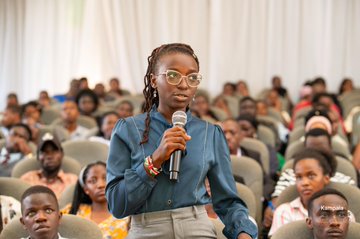
He concluded with a call for introspection. “African solutions to African problems need to be integrated into our reality. We need to look away from the global stage and look within,” he urged.
A Path Forward?
Despite differences in perspective, the panellists agreed on the importance of Africa having a more substantial voice in global governance. However, as highlighted throughout the session, the journey to a permanent seat on the UN Security Council is as much about Africa’s unity and internal reform as it is about external diplomacy.
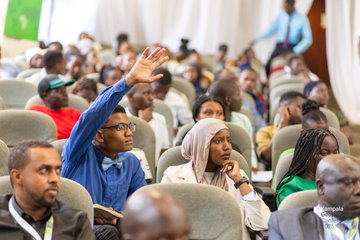
As the Kampala Geopolitics Conference continues, the conversation on Africa’s place in the world order remains one of the most critical—and complex—discussions on the table.
#KampalaGeopolitics2025 continues on Thursday at Makerere University, fostering intellectual debates on global governance, climate, security, and Africa’s evolving role in the international community.

